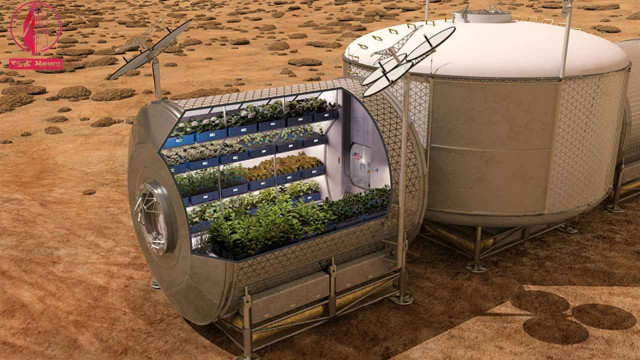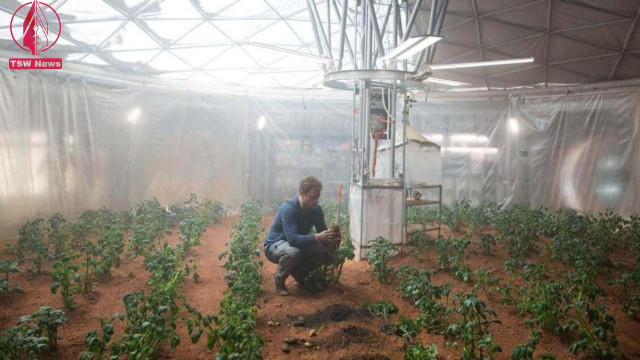The Future of Space Agriculture: Planting the Seeds for Sustenance on Mars
- Posted on June 10, 2023
- Technology
- By Arijit Dutta
- 661 Views

The Future of Space Agriculture:-
As the countdown to humanity's journey to Mars continues, scientists and engineers are tirelessly working to address one of the most critical questions facing future astronauts: how to sustainably feed a crew during their year-long mission. With the mission to send a crew of six for a 3-year duration nearing, the headache to feed them is only getting bigger.
As per sources, the crew of 6 would require a staggering 10,000 kilograms of food. Adding to that, traditional prepackaged meals and resupply missions to the Red Planet would fall short of providing a viable solution.

However, a groundbreaking concept is taking root, suggesting that astronauts could cultivate their own onboard gardens using ingenious methods to overcome the challenges of space agriculture.
Leading the charge is Robert Jinkerson, a visionary chemical engineer from the University of California (UC), Riverside. Jinkerson proposes an audacious approach: growing plants in the dark, devoid of sunlight, and relying on artificial nutrients to fuel their growth.
While plants have evolved over millions of years to harness energy from the sun, Jinkerson believes that by reawakening dormant metabolic pathways, genetically modified plants can thrive on simple, energy-rich hydrocarbons produced from water and exhaled carbon dioxide (CO2) within the spacecraft.
Jinkerson's team has already made promising strides, demonstrating that modified plants can survive, albeit not yet flourish, in a light-free environment. Their next endeavor is to optimize growth conditions, aiming to achieve vibrant plant life capable of sustaining astronauts' nutritional needs.
The implications of this breakthrough extend far beyond interplanetary missions, with the potential to revolutionize agriculture on Earth, particularly in regions where traditional farming methods face significant challenges.
The artificial plant concept not only captivates the imagination but also addresses key concerns around the survival of humanity. Jennifer Fogarty, chief science officer at the Translational Research Institute for Space Health, emphasizes that simple survival is not the ultimate goal. Current preserved food systems fall short of meeting the demands of long-duration space missions, and alternatives must be explored.
While attempts to discourage plants from sunlight have historically faced insurmountable obstacles due to the vital role light plays in plant growth and development, Jinkerson's approach is gaining support within the scientific community. Sue Rhee, a respected plant biologist at Carnegie Science, acknowledges the boldness of Jinkerson's vision, which combines genetic modifications and added nutrients in innovative ways.
While the challenges ahead are formidable, the vision of astronauts tending to thriving gardens in the depths of space or harnessing the Power of these innovations to address food scarcity on Earth is undeniably inspiring.

As humanity sets its sights on the Red Planet, it is the remarkable ingenuity of pioneers like Jinkerson that will illuminate the Path toward a sustainable and bountiful future for space travel and beyond.
For more such interesting stories keep visiting our website at www.topstoriesworld.com for TSW NEWS where we provide unbiased true, and top stories of the world.




